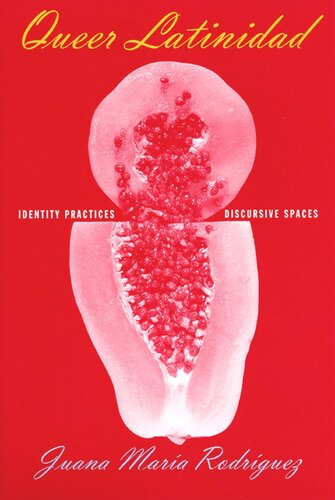

Most ebook files are in PDF format, so you can easily read them using various software such as Foxit Reader or directly on the Google Chrome browser.
Some ebook files are released by publishers in other formats such as .awz, .mobi, .epub, .fb2, etc. You may need to install specific software to read these formats on mobile/PC, such as Calibre.
Please read the tutorial at this link: https://ebookbell.com/faq
We offer FREE conversion to the popular formats you request; however, this may take some time. Therefore, right after payment, please email us, and we will try to provide the service as quickly as possible.
For some exceptional file formats or broken links (if any), please refrain from opening any disputes. Instead, email us first, and we will try to assist within a maximum of 6 hours.
EbookBell Team

4.4
32 reviewsThe author documents the ways in which identity formation and representation within the gay Latinidad population impacts gender and cultural studies today.
According to the 2000 census, Latinos/as have become the largest ethnic minority group in the United States. Images of Latinos and Latinas in mainstream news and in popular culture suggest a Latin Explosion at center stage, yet the topic of queer identity in relation to Latino/a America remains under examined.
Juana María Rodríguez attempts to rectify this dearth of scholarship in Queer Latinidad: Identity Practices, Discursive Spaces, by documenting the ways in which identities are transformed by encounters with language, the law, culture, and public policy. She identifies three key areas as the project’s case studies: activism, primarily HIV prevention; immigration law; and cyberspace. In each, Rodríguez theorizes the ways queer Latino/a identities are enabled or constrained, melding several theoretical and methodological approaches to argue that these sites are complex and dynamic social fields.
As she moves the reader from one disciplinary location to the other, Rodríguez reveals the seams of her own academic engagement with queer latinidad. This deftly crafted work represents a dynamic and innovative approach to the study of identity formation and representation, making a vital contribution to a new reformulation of gender and sexuality studies.